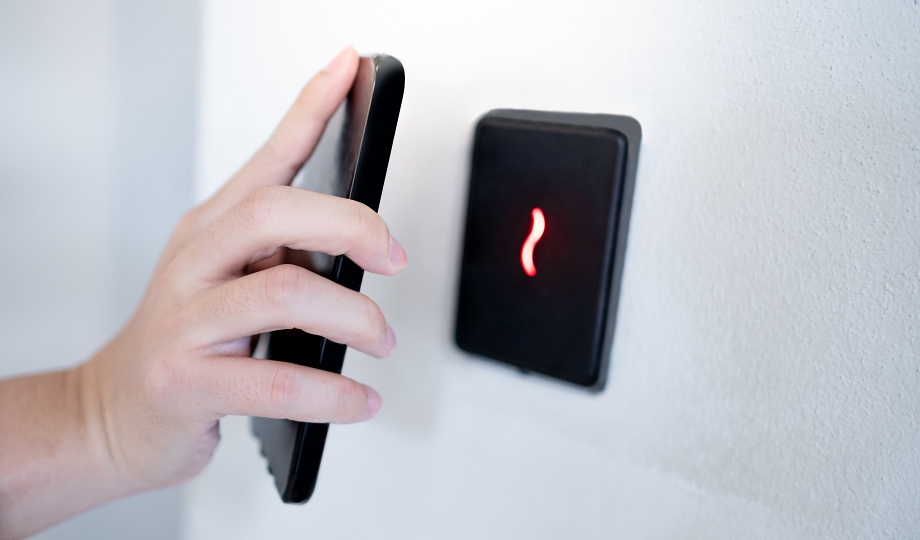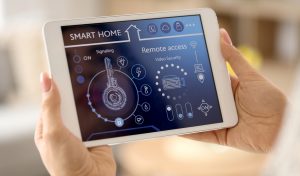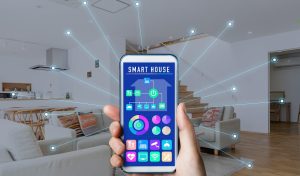
Students enrolled in instrument & control systems technology training study smart sensors and their real-world applications in preparation for their jobs and careers. Their knowledge and skills help them provide valuable services for organizations that use instrumentation and control systems.
Smart sensors transform technical training from a passive activity into an active, engaging, and data-driven experience. Studying them prepares technicians for the challenges of the modern industrial landscape. Contact ITI Technical College today for more information.
What Are Smart Sensors
 Smart sensors are devices that not only detect physical phenomena like temperature, pressure, and motion but also process the data and can communicate it. These advanced sensors often use embedded microprocessors and wireless communication. Their key features include:
Smart sensors are devices that not only detect physical phenomena like temperature, pressure, and motion but also process the data and can communicate it. These advanced sensors often use embedded microprocessors and wireless communication. Their key features include:
- Communication: Smart sensors can transmit data wirelessly to other devices and systems using technologies like Bluetooth, Wi-FI, or cellular networks.
- Data Processing: They can perform basic data processing, such as filtering noise or converting analog signals to digital.
- Embedded Microprocessors: They often include a microprocessor to handle the processing and communications tasks.
- Onboard Diagnostics: Some smart sensors can perform self-assessments and self-calibration, detecting issues like sensor contamination or failures.
Smart sensors use transducers to collect specific types of data (inside or outside). The data is run through computer resources built into the sensors to perform predefined and programmed functions. The data is then passed onto a networked connection.
Applications Of Instrument & Control Smart Sensors
It is easier to understand industrial, home, and other smart sensor applications through specific examples in everyday life. Industrial uses include level sensors to measure the level of liquids or solids in tanks or containers. Temperature sensors monitor the temperature of machinery or industrial equipment to prevent overheating. Flow sensors measure the flow rate of liquids or gases.
Smart home applications include motion sensors that detect movement and can trigger actions like turning on lights or activating security systems. Temperature sensors monitor and adjust the temperature in a room or building. Water leak sensors detect water leaks and send alerts. Smoke sensors detect smoke and fire and trigger alarms.
Other applications are used for the environment, healthcare, and transportation. Environmental monitoring scans air quality, water quality, and other environmental parameters. Sensors are used in healthcare to monitor vital signs, track patient movement, and monitor medication levels. Sensors are used in vehicles for navigation, safety, and monitoring.
|
“Smart sensors are devices that not only detect physical phenomena like temperature, pressure, and motion but also process the data and can communicate it.” |
The Role Of Smart Sensors In Technical Training
Smart sensors play crucial roles in modern technical training by enabling hands-on, real-time learning. Students see how they provide predictive maintenance simulations and data-driven analysis. They ultimately enhance their skills and knowledge retention in fields like manufacturing and automation. Students learn these significant real-world benefits:
 Real-Time Data and Feedback: Smart sensors provide immediate feedback on equipment performance, allowing trainees to understand the impact of their actions in real-time. This learning is crucial for developing practical skills.
Real-Time Data and Feedback: Smart sensors provide immediate feedback on equipment performance, allowing trainees to understand the impact of their actions in real-time. This learning is crucial for developing practical skills.
Predictive Maintenance Simulations: By simulating real-world scenarios with smart sensors, training programs can prepare technicians for performing diagnostic services. They can address potential equipment failures before they occur to enhance their problem-solving abilities.
Data-Driven Learning: Smart sensors collect vast amounts of data, which can be used to create personalized learning paths. They can assess training effectiveness to ensure that trainees are acquiring the necessary skills and knowledge.
Enhanced Safety Training: These sensors can monitor safety parameters and alert trainees to potential hazards, improving safety awareness and promoting safe work practices.
Improved Skills and Knowledge Retention: The interactive and engaging nature of smart sensor-based training leads to better knowledge retention. It improves skill development compared to traditional lecture-based methods.
Additional Technical Training Benefits
Smart sensors are vital components in today’s instrument and control systems technology training because they help prepare graduates for advanced industry applications. These training programs prepare technicians for the increasingly interconnected and data-driven world of Industry 4.0. They are equipped with the skills needed to operate and maintain smart factories and automated systems.
Students learn that enabling predictive maintenance and optimized resource utilization, smart sensors can help reduce downtime. This leads to ultimately reduction in significant maintenance and asset replacement costs.
Smart sensors have versatile applications in various technical training areas, including robotics, manufacturing, automation, energy management, and healthcare. Students learn that smart sensors can facilitate and enhance real-time collaboration between trainees and instructors, allowing for immediate feedback and guidance.
Instrument & Control Systems Technology (AOS) Associate in Occupational Studies Degree is available at ITI Technical College in Baton Rouge. Our award-winning program will prepare you for entry-level jobs in this growing industry. Request information here.
For more information about graduation rates, the median debt of students who completed the program, and other important information, please visit our website: https://iticollege.edu/disclosures/




